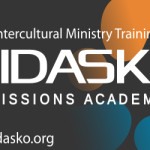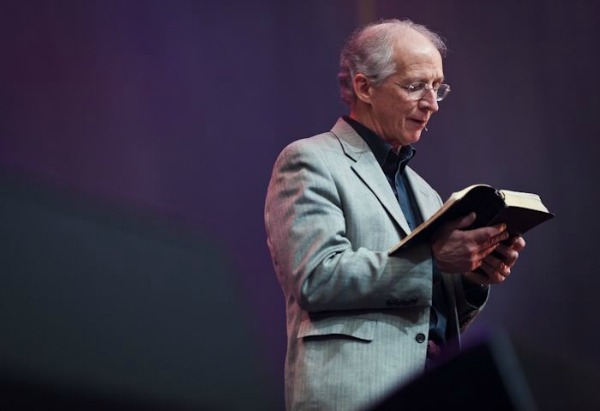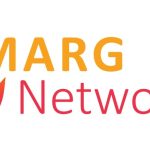We all know learning the local language(s) is crucial to reaching people, but how can we prepare to do this well? A quick search of our website reveals courses with the ICCT, Professionals Global, and SIL, but one reader is looking for reviews/suggestions of second language acquisition courses that can be done pre-field or online. Do you know of one? Please comment!
3) How Do We Learn These Languages?












ICCT Online Second Language Acquisition Course http://www.wheaton.edu/icct $1400
“Each course is normally six weeks in length, but this can be extended for those with concurrent commitments such as training events and language classes…Offered six times each year, and requires approximately 3-4 hours per day for three weeks, or 1.5-2 hours per day for six weeks. Customized to meet individual needs, and includes frequent one-on-one Skype interaction with instructor(s).”
Asean Center for TESOL teaches how to teach English. Many of our students said they wished they had taken our course before they learned a new language because they learned so much about how to learn a new language. We now have our new online platform of 8 weeks. Part 1 is only $100 (missionary price).
in broad terms there are 2 approaches:
– self-directed and
– Language school.
If a good language school exists in location, it will provide the structure and discipline needed to make a good start in language. Get references from other workers before deciding on a school. The emphasis has to be on TALKING the language.
If no language school exists my suggestion is that you use GPA method. It is phased. Has very helpful resources for every phase and the manuals leads you through the process. (See https://www.growingparticipation.com/)
Two other self-directed approaches that I have toyed with, but not long enough to give a thorough review on are:
– Fluent Forever (https://fluent-forever.com/app/)
– Fluent in Thee Months (https://www.fluentin3months.com/)
Whether you are in a school or doing something self-directed, you should keep in mind that it takes a few different aspects to learn a language. They are:
– Class time
– Study / review time
– Community time (practice with real people/listening to the language through film/audio).
I’m a big fan of Duolingo for pre-field language learning. Duolingo is a free app supporting Android, iPhone, PC, and Mac with an ever growing list of languages offered. It helps goers build a foundation prior to departure which gives them a head start to their full time language acquisition program once they are on the ground. It definitely isn’t a substitute for cultural immersion language programs offered in their destination country. But, it’s a great pre-departure tool!
Try this quad lingual video dictionary and either download to your device or use the playlists online. Volunteer mother tongue speakers add their language.
https://www.youtube.com/channel/UCB6zQ8jPz1vv8UvEY4VmfVg
The His Hands Reader mother tongue literacy website has just added a subscribe feature. Subscribe and be notified when a new mother tongue curriculum has been added for your region of the world. Ten languages are posted and 6 more will be soon.
Click on my name for this post to go to the His Hands Reader website.
MTI in Colorado Springs offers a month-long course called COMPASS that includes a strong unit on training in language and cultures learning – https://www.mti.org/compass/
Several language learning courses are listed at http://www.calvarymrc.com/language-acquisition: SIL, Institute of Strategic Languages and Cultures, Center for Intercultural Training, Institute for Cross-Cultural Training, and Culture Bound, along with a link to Audio Forum, a source for a variety of video and workbook language courses.
Hey, everyone!
SLA and language learning are near and dear to my heart! I’ve been working for an organization that specializes in the process of learning languages with the purpose of helping cross-cultural workers. The organization that I work for is called Conexion Training.
We offer an online course to help set up a study plan for language learning, and we also have a culture course online now. Check it out here: http://www.conexiontraining.org
Blessings!
These are great options! Thanks, everyone, for input. Please keep it coming.
Having watched language acquisition in our own org over the last 43 years, I can honestly say – maybe the most important thing is to find someting that works your personality. LAMP (Language Acquisition Made Practical) worked for me. I trained for 80 hours under Tom and Betty Sue Brewster at Fuller and … wow… for the next 9 months, I LIVED their “GLUE” approach… “Get, Learn, Use, Evaluate” — then rinse and repeat. Four phrases a day. It seems almost too simple. But it worked for me. So maybe the best approach is – find somethat that works for you… a system… and then doggedly determine to follow it. Read a short summary about LAMP here: http://peopleofyes.com/wp-content/uploads/2012/02/jit-2b-10-Learn-language_quickly-while-bonding-with-people-7-pages.pdf . Acquire the entire course and course resources here. https://searchforwisdom.org/product-category/lamp/. Thanks to Betty Sue Brewster who is still an active participant in the Brigada family. In fact, she has already commented above, humbly, without revealing her background in language acquisition or her Ph.D. in linguistics. She is an inspiration to us all, yet today.
I coordinate the Second Language Acquisition class at the Center For Intercultural Training (CIT). My totally biased opinion is, it’s VERY good! I would encourage everyone to take a “how to learn a language” class before they start learning a language. Maybe your language school is good, maybe it isn’t. Having the tools you need to supplement any program will benefit you. I have watched countless missionaries get to the field, get stuck, and then stop trying. Or put in their time required for language school, but never actually learn to communicate at a deep level in the culture. Our program makes you aware of many different techniques and allows time to practice the skills with speakers of different languages.
At Biola University in southern California, the Cook School of Intercultural Studies offers its undergraduate students a course entitled Practicum in Language and Culture Learning (INAL or INCS 313) , which most complete before they do their internship (often overseas). We also have courses in Introduction to Language and Linguistics and Second Language Acquisition. See http://cook.biola.edu/
I continue to be amazed at the quality of posts here in these comments. To me, these are some of the foremost language acquisition courses currently offered in the entire nation. Thank you all for participating. Please — keep them coming.
Another way to arrive to the Growing Participator Approach is: https://www.facebook.com/GPApproach. This approach is truly about growing in participation in another languacultural world, both culture & language simultaneously. It emphasizes humility and putting the hosts as the top priority.
And this from Ian Benson: “Also based on Betty Sue Brewster’s work is the booklet How to Learn Another Language at https://www.missionarytraining.org/booklets/21-how-to-learn-another-language “
Ian Benson *@**di.org https://www.missionarytraining.org/ .”
LAMP LAMP LAMP LAMP
I learned Malagasy using this. Malagasy is a dastardly difficult language. With the focus being on speaking you learn how to speak a language
Many other approaches focus on getting you to know the language. SO you know the grammar and conjunctions etc but you cant speak it. I include stuff like Duolingo (I hvae more than 30 000 French experience points) I know a lot but I cant speak yet.
I agree with Betty, very important to know HOW to learn a language before starting. I did training on this with MTI (I think) before hitting the field and It was invaluable.
I have benefited from Duolingo, But I have become a huge fan of http://www.lingq.com. I learned about it through Brigada!
It has accelerated my personal language acquisition by 30 to 40% over my other self-directed methods. The only limitation is that it only in 30 or so languages and the User Interface is clunky, but it is very robust. It’s $13 a month. But I paid for the annual fee and it’s a lot cheaper.
Steve Kaufman, the founder, is my language crush. He’s got varying degrees of proficiency in 20 languages. https://www.youtube.com/channel/UCez-2shYlHQY3LfILBuDYqQ
Clyde, we’re thrilled to hear that Lingq is working for you! That’s awesome. We’ve heard so much good about Steve Kaufman as well. Jandre, perhaps you’ve noticed – we’re HUGE, totally-sold-out fans of LAMP too. It worked for us as well. Thanks for your recommendation. Betty Sue might see it, which would be encouraging for her as well. She is a frequent encourager to Brigada.